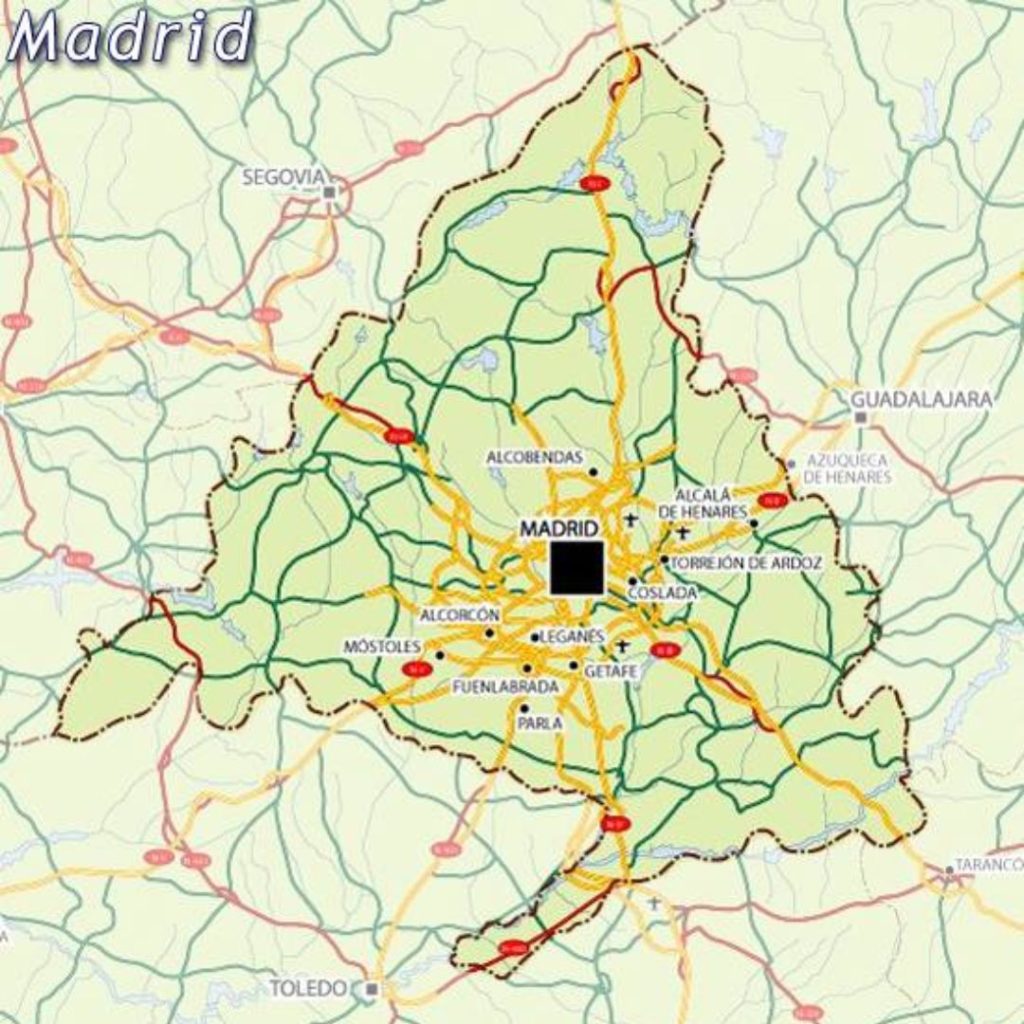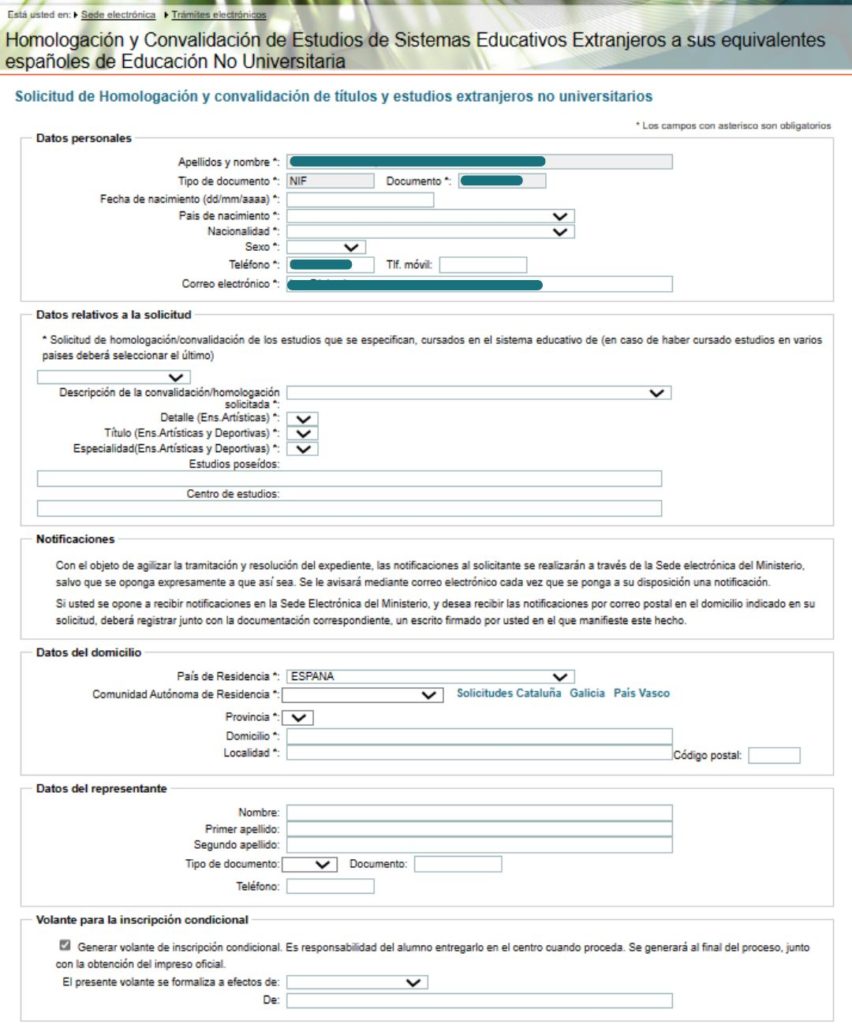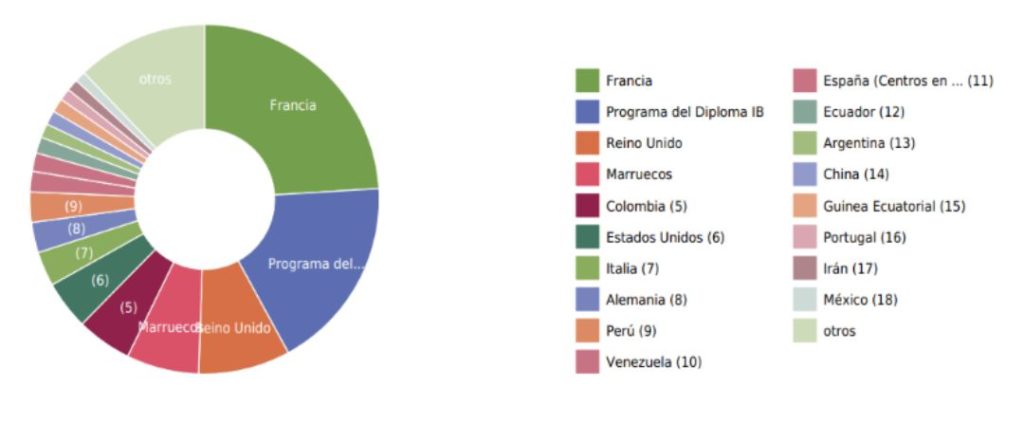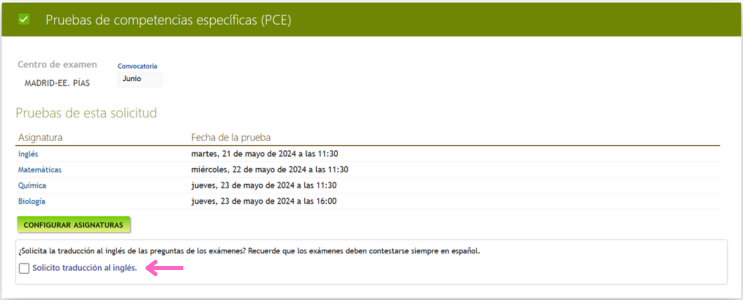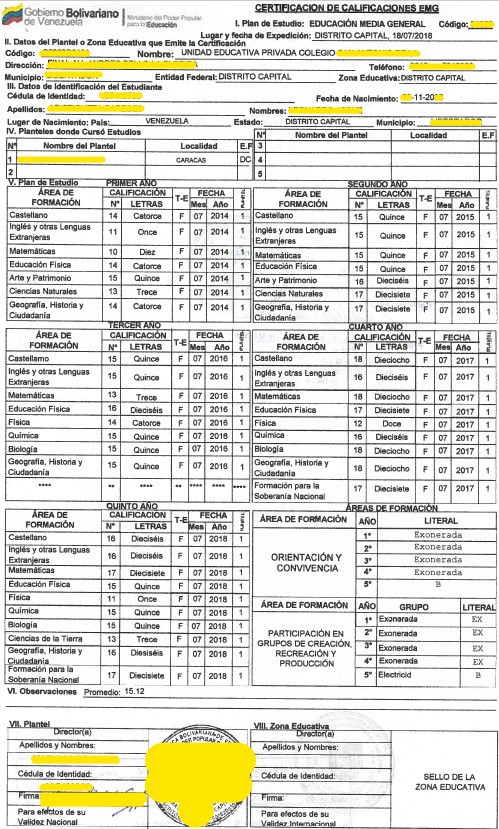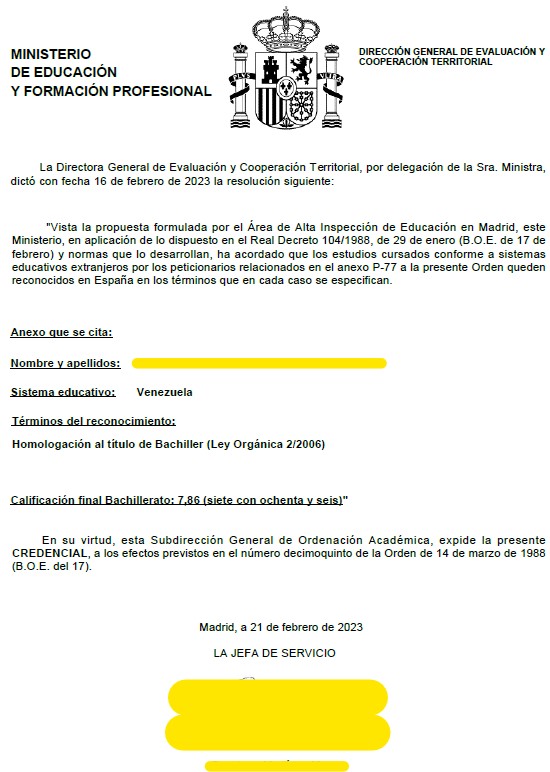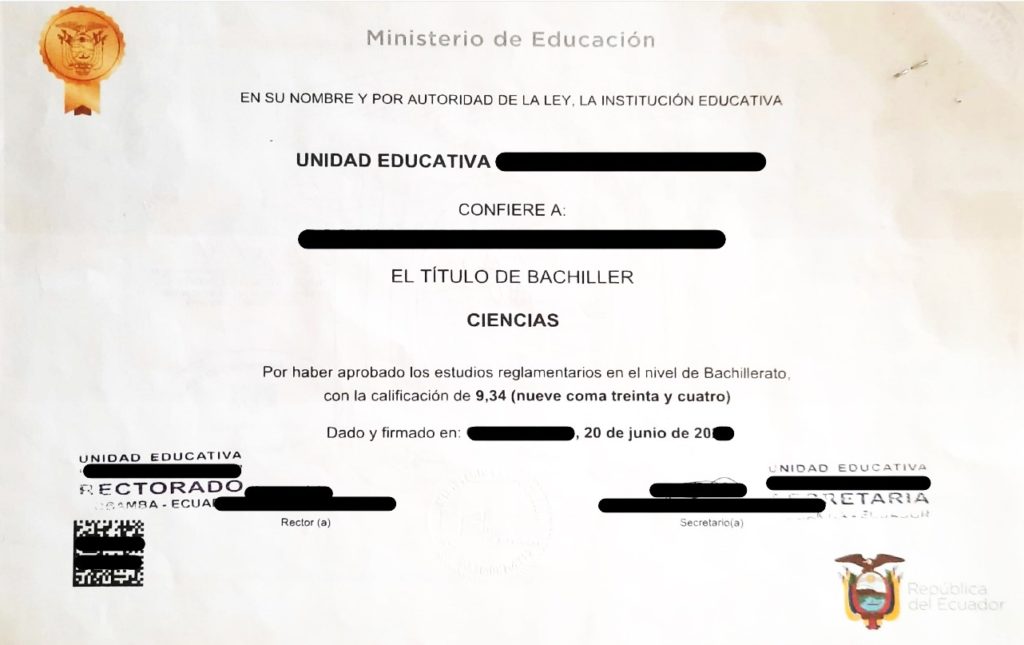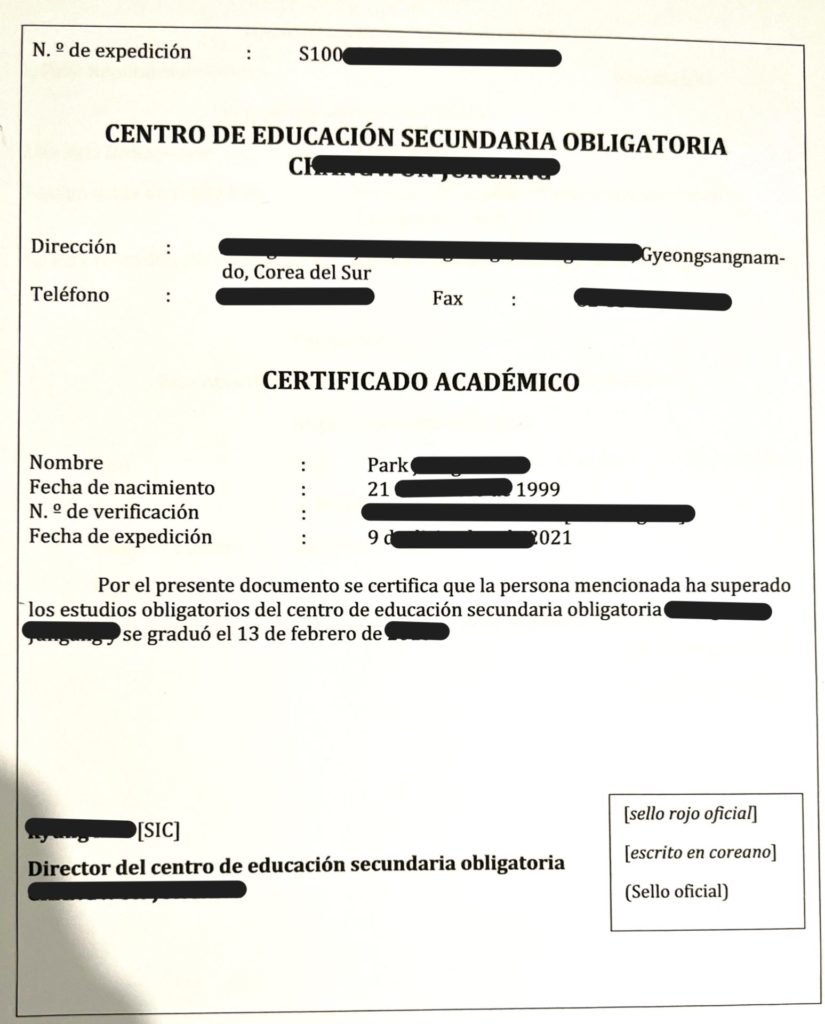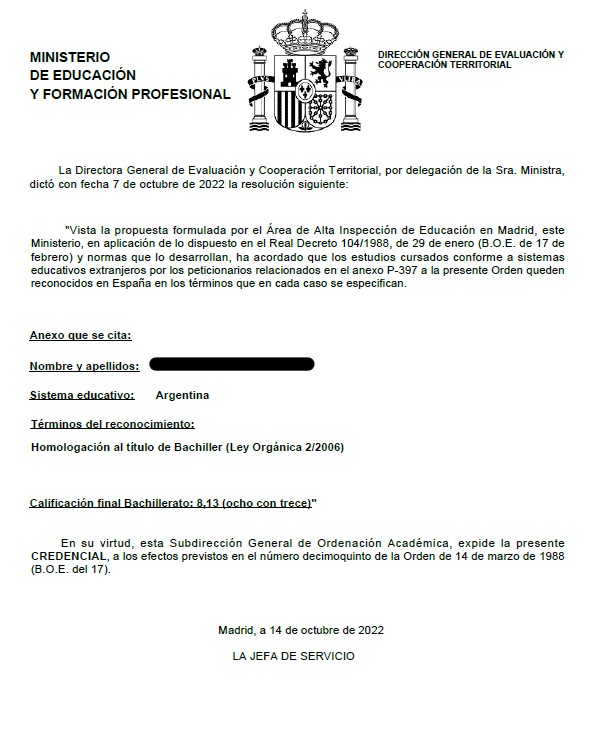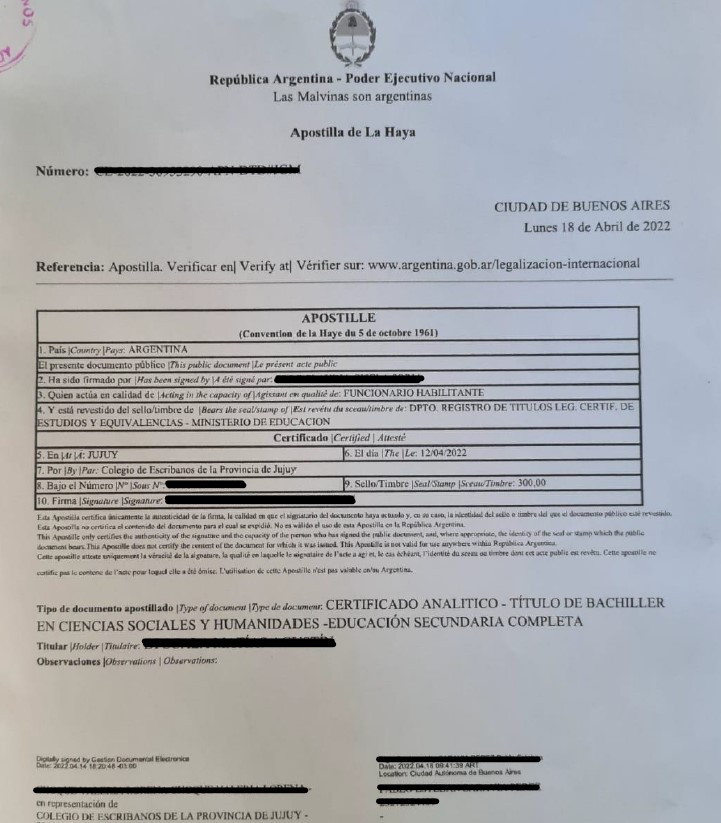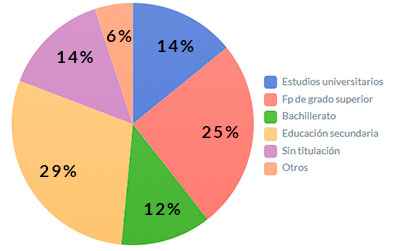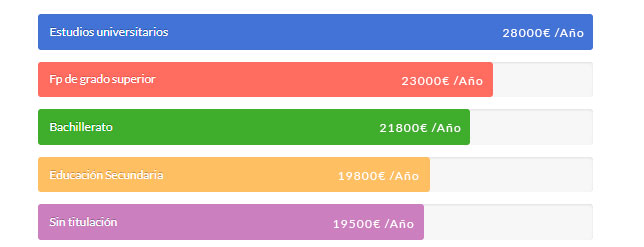For many years now, young Europeans and Chinese have chosen Spain as a destination for their higher studies. For 25 years, at Luis Vives we have received hundreds of these students. They come to pursue a university degree or complete a cycle of Higher Vocational Training. And this is not just limited to Europeans and Chinese! Every year, Spain welcomes with open arms students of different nationalities who hold the International Baccalaureate (IB) degree. Spain is a country with many academic and professional options for those who wish to undertake an international educational experience. There are many reasons to study in Spain if you are from the EU, China or have an IB International Baccalaureate (Annex I studies).
Reasons to study in Spain
Why travel to Spain to study? If you are thinking about packing your bags and traveling to Spain to study, we hope these reasons will help you decide:
- Educational quality exceptional: Spain boasts a solid academic tradition. You can find dozens of high-level universities throughout its geography.
- Diversity of programs Academics: Spanish universities offer different branches of knowledge: engineering, health, business administration, etc.
- Cultural and heritage wealth: Spain is famous for its rich culture. It has numerous museums, historical sites and artistic manifestations that will enrich your living and learning experience.
- Gateway to Europe: Spain gives you the opportunity to get to know other countries in Europe. This is due to its proximity and the countless connections by land, sea and air.
- Climatic and geographical diversity: In Spain you can find all kinds of landscapes. From the mountains of the north to the warm beaches of the south, passing through incredible cities like Madrid, Barcelona or Seville.
- Enriching international experience: Studying in Spain allows you to connect with people from hundreds of countries. They choose our land as a destination for their educational and professional development.
- Promising job prospects: Many students choose to stay in Spain after graduating. Although youth unemployment is among the highest in Europe, there are many opportunities for students with higher degrees.
- World-renowned gastronomy: If you come to Spain you will be sure to enjoy one of the best cuisines in the world. Who doesn't know the famous Mediterranean diet?
- Vibrant university life: In Spain, university life is vibrant, with a wide variety of activities day and night, with bars and shows that enrich the lives of all students.
Steps and documentation necessary to study in Spain if your Baccalaureate is from the EU, Chinese or IB
To study in Spain you must meet the requirements to be admitted to a Spanish university. It is required to have a qualification equivalent to the Spanish Baccalaureate and, normally, pass a university entrance test known as UNED Selectivity: the PCE UNEDasiss Specific Competencies Tests.
- Students with the International Baccalaureate (IB) or European Baccalaureate (EU) must have a certified copy of the International Baccalaureate diploma or Baccalaureate degree, and the IB or 2nd Baccalaureate transcript if it is European.
- Chinese students must translate and legalize their high school diploma (Pu Tang Gao) and national exam (Gao Kao).
- In most cases, students must apply for UNEDasiss accreditation and register for the Specific Competencies Tests (PCE).. These tests take place in May and September and are widely recognized by Spanish universities to admit international students. Generally, these students will take only two PCE UNEDasiss subjects. You can prepare for these tests both in a foreign country and in Spain. From anywhere, you can always choose our training online o in-person or.
Once the PCE UNEDasiss tests have been passed, UNED will issue the necessary accreditation for access to the university. Your admission grade at the university will be calculated based on the grades obtained in the PCE UNEDasiss and the grades of your Baccalaureate or university entrance test in your country, depending on whether you have IB, Baccalaureate of the European Union or China .
Other important aspects if you plan to study in Spain if your Baccalaureate is from the EU, China or IB
There are some things you should keep in mind if you are thinking of studying in Spain if your Baccalaureate is from the EU, China or is an International Baccalaureate:
- study visa: to study in Spain if you are from a non-EU country, that is, if you are from a non-European country, you must apply for a visa at the Spanish Consulate in the country of origin, proving your registration in a teaching center, your economic capacity , the home you will have in Spain and the absence of criminal records. If you are from the EU, things are much easier. Surely you will be very interested in reviewing this article that we have created with all the tips to move to Spain if you are an EU citizen, or this other one if you want emigrate to Spain as a non-EU citizen.
- Cost of living in Spain: you must calculate the expenses related to your trip and stay in Spain, including travel expenses, housing, maintenance, lifestyle and academic expenses.
- Adaptation to the Spanish educational system: although the educational systems of the EU, China or the IB share similarities with the Spanish one, there may be differences, such as the level of some subjects. Preparing properly is essential to achieve success.
- You can look for support networks to help you undertake this adventure, such as agents who facilitate the procedures and transition.
We help you with everything you need to study in Spain
At the Luis Vives Study Center, in addition to offering the preparation course for the PCE UNEDasiss Specific Competencies Tests, we provide administrative, legal and academic advisory services, such as:
- Help to apply for a study visa.
- Assistance with the procedures upon arriving in Spain: housing, insurance, opening a bank account, contracting services, etc.
- We advise you so that you know choose your subjects of the PCE UNEDasiss Specific Competencies Tests.
- Registration service for UNEDasiss accreditation.
- Information about universities in Madrid and throughout Spain, both public and private.
If you have already decided, what are you waiting for? Get going now, you can start preparing for the PCE UNEDasiss test subjects and count on our help during your trip and learning. Do not doubt contact us!
My name is Elena Barea, I am the coordinator of the PCE course and expert counselor in the UNEDasiss accreditation of the Luis Vives Study Center. I hope I've helped. Cheer up, now for 10!




